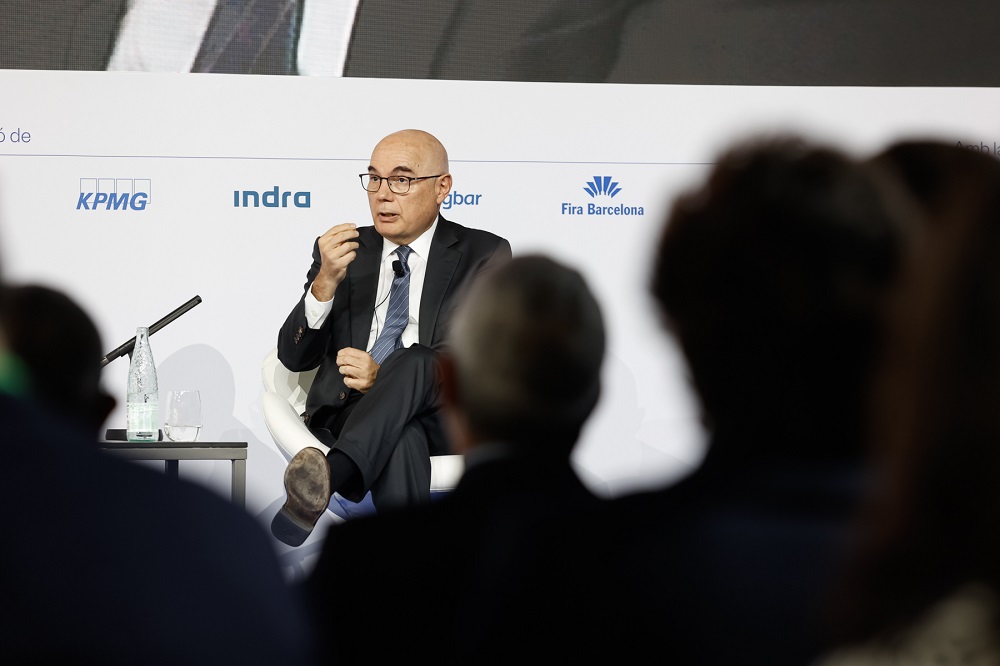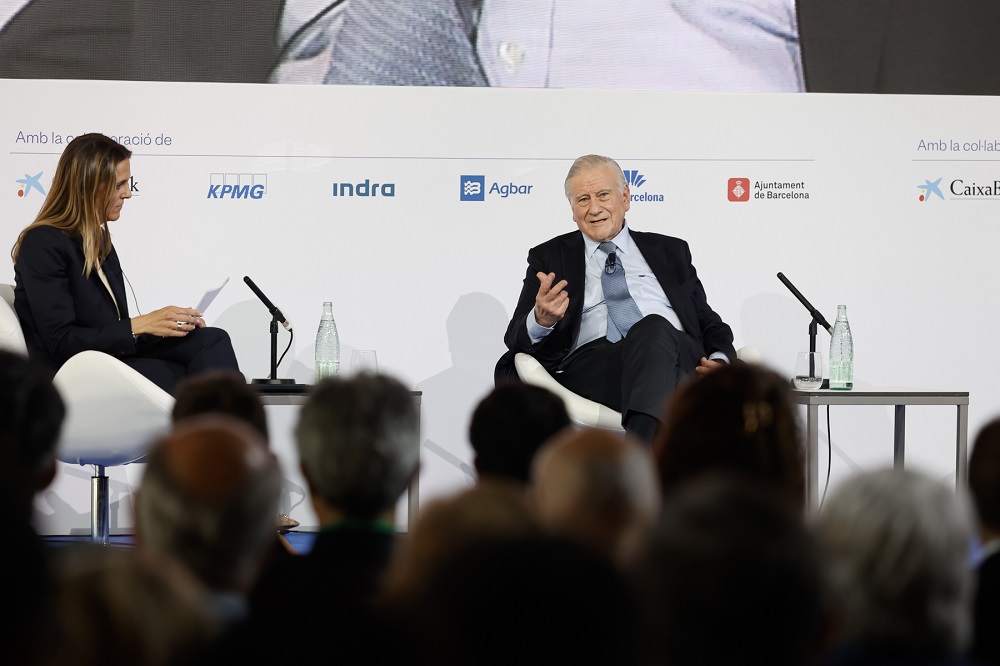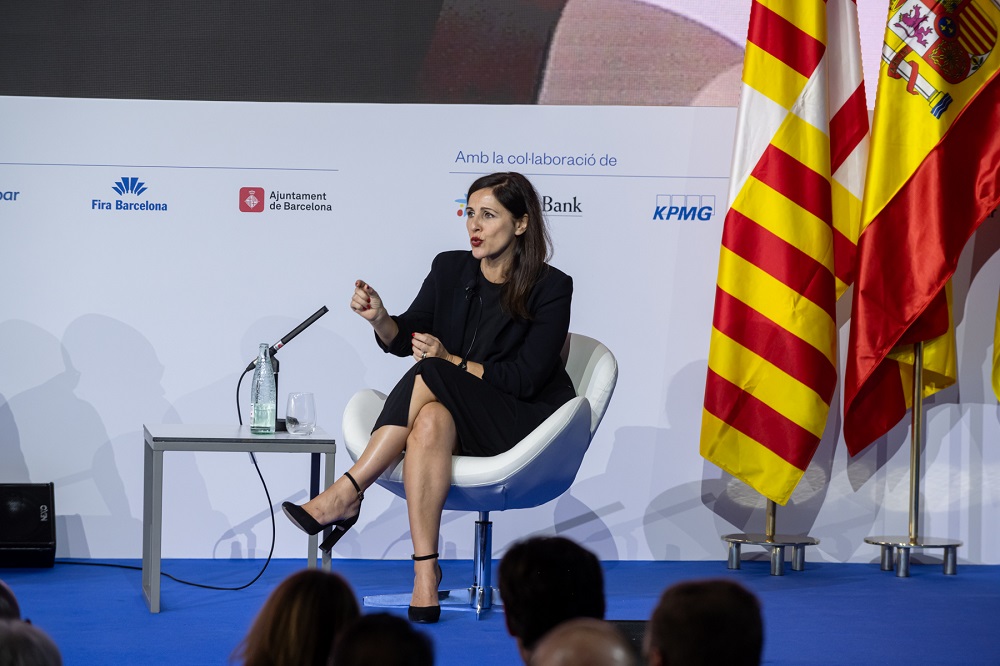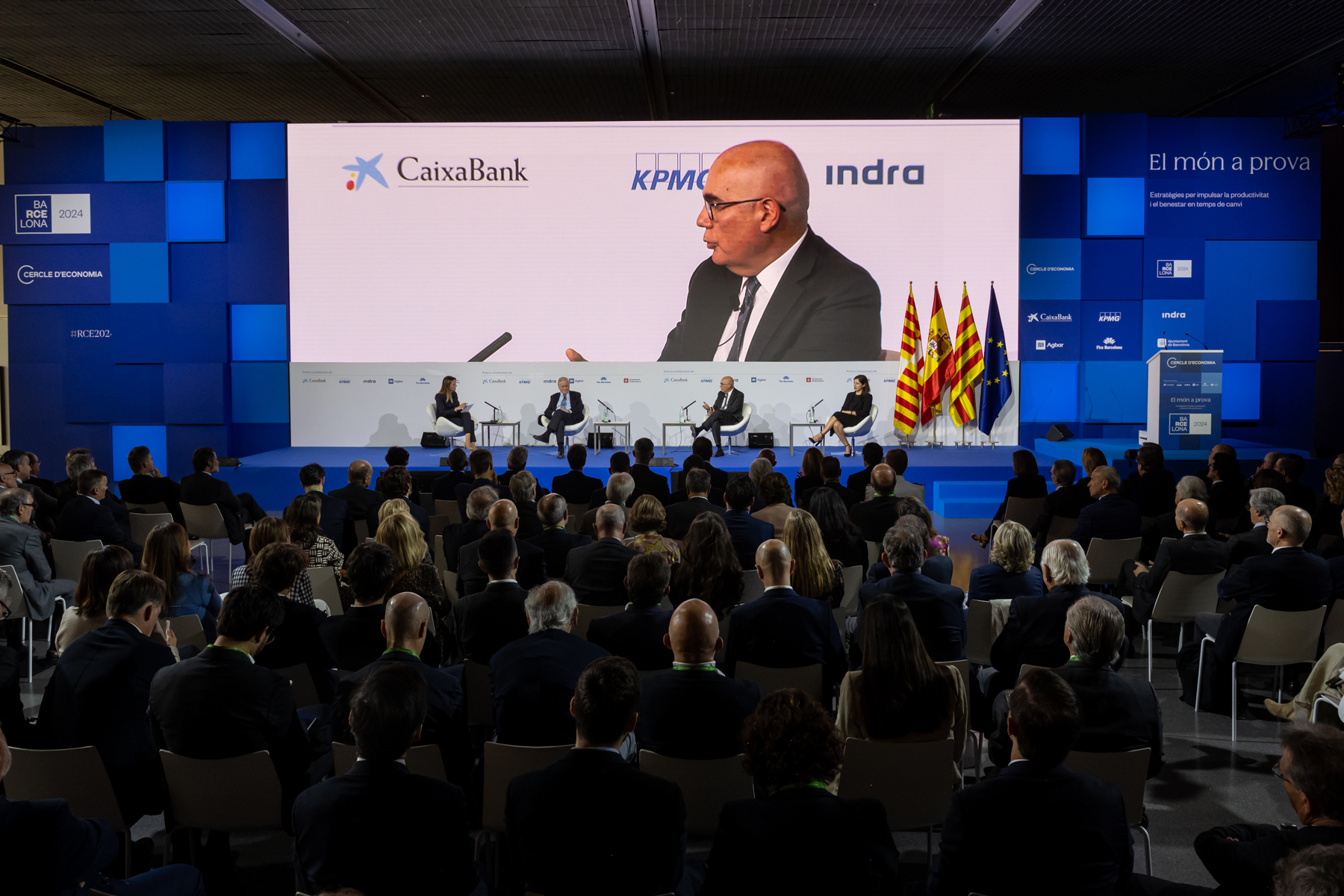Clara Campàs, member of the Board of Directors of Cercle d'Economia, proposed the session in three parts: a review of the last 20 years, with the technological revolution in the economy and the challenges and opportunities that it presents; the importance of basic research, crucial for developing products and technologies that transform the lives of patients and citizens; and the analysis of how these advances not only create well-being, but also impact productivity and opportunities for Spain, Europe and, more specifically, in the biomedical hub of Barcelona, a key hub in southern Europe. Campàs began the session with Josep Tabernero's intervention focused on cancer, a disease that, although it causes 10 million deaths a year in the world, its survival has increased and certain types can now be cured.

Josep Tabernero, director of the Vall d'Hebron Institute of Oncology (VHIO), stressed the revolutionary advances in the knowledge of cancer in the last 30 years, indicating that this transformation has been possible thanks to the prioritization of the study of the genome of oncological diseases by various international consortia, which allows a deeper understanding of the mechanisms of cancer. "Understanding that cancer is multiple diseases" has been crucial in subclassifying large tumours into more specific entities, which has facilitated the development of targeted treatments and precision medicine. He indicated that immunotherapy has represented a significant change, since it allows the immune system to react better to the disease. A notable technological advance has been liquid biopsy, with earlier diagnoses for diseases with high mortality (pancreatic and lung cancer). And he referred to the increase in cancer survival from 35% to 65% in Spain, with expectations of reaching 70% before 2030.
He underlined the persistent challenges: their incidence remains alarming – 20 million diagnoses per year that may grow to 30 million by 2040. This makes it necessary to change lifestyle habits and robust educational policies, since "globally we are getting worse". And prioritise innovation based on its value to society.
The population's unequal access to these advances is widening the equity gap, which is why Tabernero pointed out the need for a broad discussion that empowers citizens and society to address disparities.

Cardiovascular Health
For his part, Valentí Fuster, Physician-in-Chief at The Mount Sinai Hospital and President of Mount Sinai Fuster Heart Hospital, focused on cardiovascular mortality, which has decreased in recent decades thanks to advances in intensive care units, cardiac surgery, defibrillators and the reduction of smoking. Although he raised a paradox: "We are improving technology, but instead mortality is increasing," especially in the United States and in middle and low economy countries due to socioeconomic factors and limited access to expensive medications. He also stressed that the consumer society and poverty are critical challenges that must be aggressively addressed to improve cardiovascular health.
And regarding obesity, he indicated that it is recognized and treated more effectively, with new treatments that help reduce weight and, consequently, reduce the risks of diabetes, hypertension and high cholesterol. He added that there is no long-term data on the effects of these drugs, so he insisted on the need to maintain a personal motivation to exercise and follow an adequate diet: "You have to decide whether to take care of yourself or not."

Gene therapy
In her turn to speak, Virginia Haurigot, Head of Eye Research at Spark Therapeutics, put on the table the evolution of gene therapy and editing, underlining the great progress of the last twenty years and highlighting how concepts that once seemed like science fiction have now been translated into approved drugs: "If you had asked me 20 years ago what gene therapy and gene editing were, I would have given a very simple definition and told you that it was a utopia."
Gene therapy is defined as the attempt to instruct a cell to produce a protein that is missing or cancels out a gene that causes pathology, while gene editing directly corrects the error in the patient's DNA. Haurigot also highlighted technological advances in the treatment of genetic diseases with numerous drugs that make it possible to treat previously untreatable conditions, such as some treatments for spinal muscular atrophy and inherited forms of blindness.
He pointed to the acceleration in the approval of these drugs, thanks in part to advances in artificial intelligence and molecular biology that allow the design of custom vectors and proteins. "The cadence of drug approval has been increasing exponentially," he said. And she attached importance to basic research, as it often leads to therapeutic applications.

Immunotherapy
The session also discussed the importance of research in the field of immunotherapy and its impact on various diseases and highlighted that it is essential to fund both basic and clinical research – both complementary – to develop effective treatments. Fuster remarked that "basic science and clinical science must be completely united" and pointed out that in the United States this approach is promoted with well-funded group projects. Tabernero noted the "structural advantage" of this country in relation to cancer research, since thanks to initiatives such as the National Cancer Act (1971), the creation of the National Cancer Institute and scholarship programs for clinical and translational research were promoted. And Haurigot added that the difference in investment and risk attitude in the United States accelerates scientific output and innovation.
The moderator concluded the session by highlighting the agreement of the three speakers on the need for close collaboration between basic and clinical research, the importance of an educational and cultural approach to promote health and the relevance of public policies and adequate funding to maintain and improve Europe's scientific competitiveness.